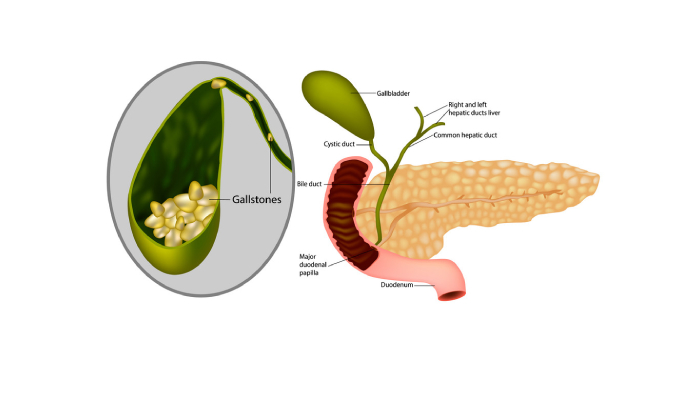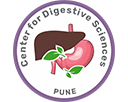What Is Cholelithiasis?
Cholelithiasis is the medical name for hard deposits (gallstones) that may form in the gallbladder. The cause of cholelithiasis is not completely understood, but it is thought to have multiple factors. The gallbladder stores bile and releases it into the small intestine when it is needed for digestion. Gallstones can develop if the bile contains too much cholesterol or too much bilirubin (one of the components of bile), or if the gallbladder is dysfunctional and cannot release the bile.
The size and number of gallstones varies in cholelithiasis; the gallbladder can form many small stones or one large stone.

What Are The Symptoms of Cholelithiasis?
You may experience cholecystitis symptoms daily or just once in a while. At times, any of these common symptoms can be severe:
- Abdominal pain (typically localized to the right upper quadrant of the abdomen)
- Abdominal swelling, distension or bloating
- Abdominal tenderness
- Clay-colored stools
- Fever and chills
- Loss of appetite
- Nausea with or without vomiting
- Pain that radiates from the abdomen to the right shoulder or back
Risk Factors
- Age over 40 years
- Crash dieting, or losing weight rapidly (the bile then contains more cholesterol)
- Diabetes
- Ethnicity
- Family history
- Female gender
- Liver disease
- Overweight or obesity
What Causes Cholelithiasis?
In most cases, cholelithiasis is caused by excessive amounts of cholesterol in the bile that is stored in the gallbladder. The cholesterol hardens to form stone-like substances. Increased body weight and older age are associated with increased levels of cholesterol in the bile. Thus, gallstones are more likely to occur in women, in people who are obese, and in older individuals. Some gallstones develop because the bile contains too much bilirubin, a waste product of the liver that is a component of bile. Gallstones that develop from excess bilirubin are called pigment stones.
How is Cholelithiasis Treated?
Treatment of cholelithiasis begins with seeking medical care from your health care provider. To determine if you have cholelithiasis, your health care provider may ask you to provide blood samples and undergo diagnostic tests. Some people with cholelithiasis never have any symptoms. If you have symptoms of cholelithiasis, you may be hospitalized and given antibiotics to prevent an infection. Food intake is normally stopped, and intravenous fluids are administered to let the digestive system rest. You may also receive medication for the abdominal pain associated with cholelithiasis.
Book Your Appointment Today
Book your appointment with Dr. Ujwal Zambare he is having 10 years of experience in Gastro-intestinal surgery, oncology, minimally invasive surgery and Liver, Pancreas, Biliary tract surgery.

Dr. Ujwal Zambare
MBBS, MS (General Surgery), DNB (Gastrointestinal Surgery)
Fellowship in Minimal Access Surgery
Copyright © 2021. Dr. Ujwal Zambare – Gastrointestinal, Hepato-Pancreatico-Biliary and Liver Transplant Surgeon in Pune. | All Rights Reserved.
All Text and Images is for information of Patients and Public and doesn’t replace medical practitioners advice. Visit doctor for medical advice.



